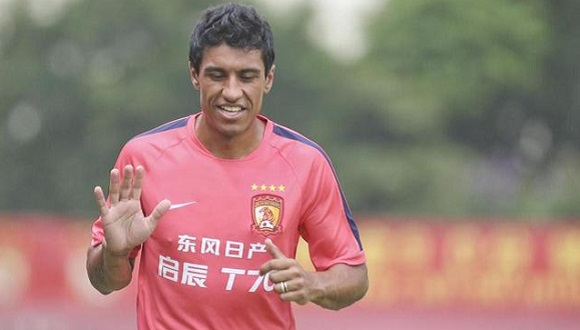Chinese SuperLeague: a competitive spending game
Ghana's AsamoahGyan is reportedly set to complete his money-spinning switch from Emirati’s Al Ain to China's Shanghai SIPG FC, coached by Sven Goran Eriksson on Wednesday. Just a couple of days earlier, Brazilian Paulinho completed his £10m move to Guangzhou Evergrande FC from Tottenham Hotspur.
Now the list has been enriched since the summer transfer market opened, by the transfers of Senegal’s Demba Ba to Shanghai Shenhua and Icelandic international Eidur Gudjohnsen’s move to mid-table Shijiazhuang Ever Bright. It has also been reported that Guangzhou Evergrande have been heavily linked with Brazil’s Robinho since landing Luiz Felipe Scolari as the head coach. Within one week, those CSL teams have managed to seal deals with several £10m-plus players who have already established playing careers in Europe. Who is going to be the next?
The big spending spree from CSL clubs has drawn real attention from various media. Some argue that it has shown the capital-powered transfer policy has, at least, enhanced the brand awareness of CSL, while others are concerned about the development of the sport in the long run as local players could possibly make way for these expensive international transfers. However it will be the sport and in particular its development in China, rather than the media that would be affected by these spending sprees.
Well, it is fair to argue if it is those popular football stars, such as Didier Drogba or Nicolas Anelka, that have helped to drive up attendances and viewership of CSL matches. Nevertheless CSL games appear to be becoming a lot more competitive and entertaining because of the presence of top international coaches and players. The problem is how can China’s national team benefit from CSL’s rising presence in Asia?
With increasing astronomical transfer fees and lucrative player salaries and bonuses just to land these international players, it will also increase the costs for CSL clubs to retain and coach domestic players. If the money could play a part in youth development and training in the academies or even at grassroots level what would those clubs achieve instead after all their efforts?
Japan has risen through the ranks in terms of football due to the establishment of excellent youth academies and quality coaches, setting an example to all in the promotion of sports development. In spite of this China’s investors are currently trying another approach, albeit an expensive one, to upgrade the CSL to a more comprehensive and influential brand.
Source: Beijing Youth Daily
Proofread by Raymond Fitzpatrick
